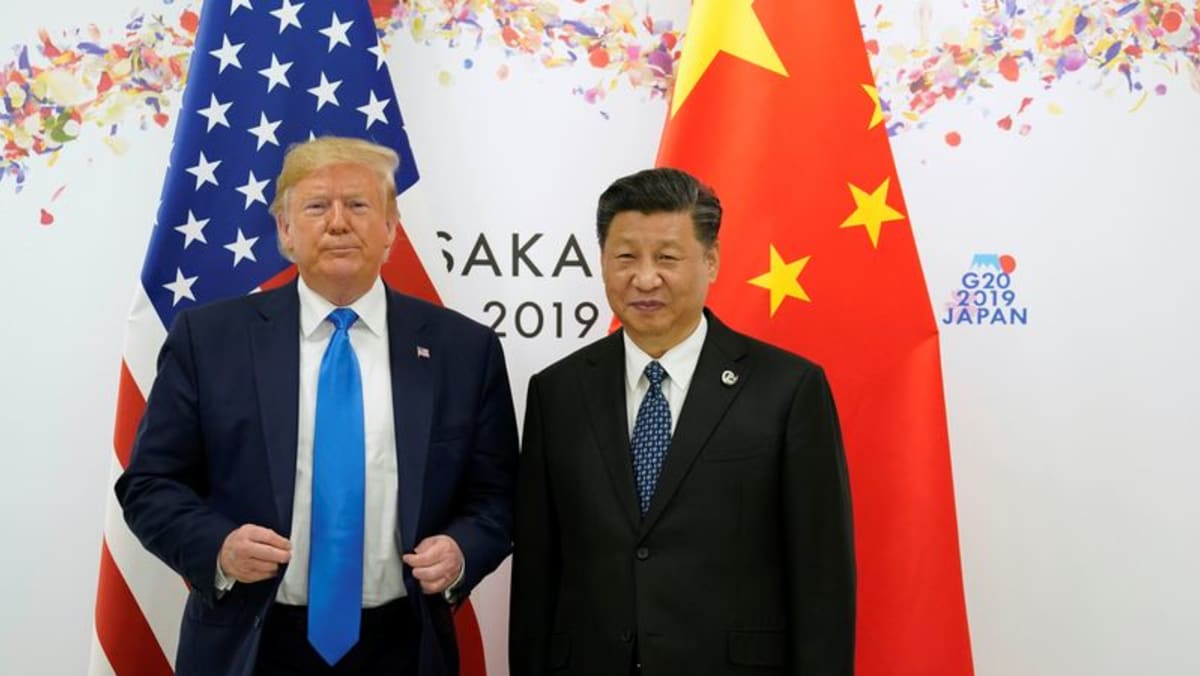As global attention turns to the upcoming Asia-Pacific Economic Cooperation (APEC) summit in South Korea, speculation is mounting over a possible meeting between U.S. President Donald Trump and Chinese
Did You Know
Butterflies taste with their feet.
?
AD
President Xi Jinping. Scheduled from October 30 to November 1, this summit represents a crucial platform for both leaders to engage in direct dialogue amid lingering tensions. With the backdrop of an escalating tariff war and trade disputes, the prospect of a Trump-Xi meeting could signal a pivotal moment in U.S.-China relations in 2023.
This anticipated encounter comes on the heels of their last high-level meeting in July, where leaders sought to navigate the complexities of their nations' economic interdependence. Now, with both sides feeling the pressure from ongoing trade issues, the APEC summit offers an opportunity for constructive engagement. There is a growing consensus among analysts that a face-to-face meeting might be essential in addressing critical concerns, fostering dialogue over contentious trade practices, and pursuing a path toward renewed cooperation.
As Trump considers visiting China prior to the summit, the timing is ripe for meaningful exchange on pressing global issues. This engagement could not only ease the tensions that have characterized recent months but also set the stage for future economic stability. The forthcoming APEC summit represents not just another diplomatic event, but potentially a chance for two of the world’s largest economies to pave a new path toward collaborative growth, highlighting the importance of dialogue in an increasingly complex international landscape.
Q&A (Auto-generated by AI)
What is the APEC summit's significance?
The APEC (Asia-Pacific Economic Cooperation) summit is significant as it brings together leaders from 21 member economies to discuss economic growth, trade policies, and regional cooperation. It serves as a platform for addressing pressing issues such as trade tensions, economic integration, and sustainable development in the Asia-Pacific region. The summit facilitates dialogue among major economies, including the U.S. and China, which are crucial for global trade dynamics.
How have US-China relations evolved recently?
US-China relations have been characterized by increasing tensions, particularly over trade practices, tariffs, and geopolitical issues. Recent interactions have included attempts to negotiate trade agreements and mitigate tariffs that have escalated since 2018. The potential meeting between Trump and Xi aims to address these issues, reflecting a desire for dialogue amidst ongoing disputes.
What trade issues are at stake in this meeting?
Key trade issues at stake include tariffs imposed by both countries, intellectual property rights, and trade imbalances. The U.S. has criticized China for unfair trade practices, while China seeks to protect its economic interests. The meeting could pave the way for negotiations to ease tensions and potentially reach agreements that impact global supply chains and economic stability.
When was the last Trump-Xi meeting?
The last high-level meeting between Donald Trump and Xi Jinping occurred in July 2021. This meeting was part of ongoing efforts to manage the complex relationship between the two nations, focusing on trade, economic cooperation, and addressing mutual concerns, although it did not result in a significant breakthrough.
What are the historical ties between the US and China?
US-China relations date back to the 18th century, evolving through various phases, including cooperation and conflict. The establishment of formal diplomatic relations in 1979 marked a significant turning point, leading to increased trade and cultural exchanges. However, tensions have risen in recent years over issues like human rights, trade practices, and military presence in the Asia-Pacific region.














